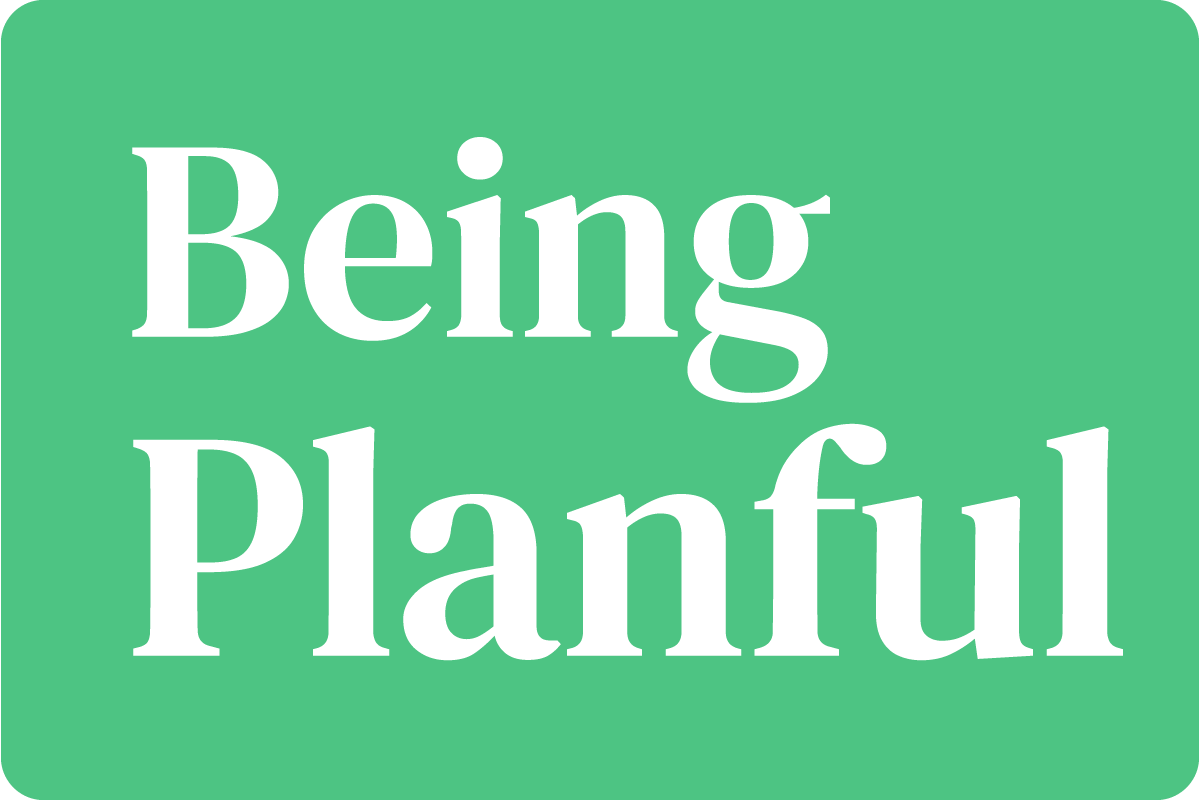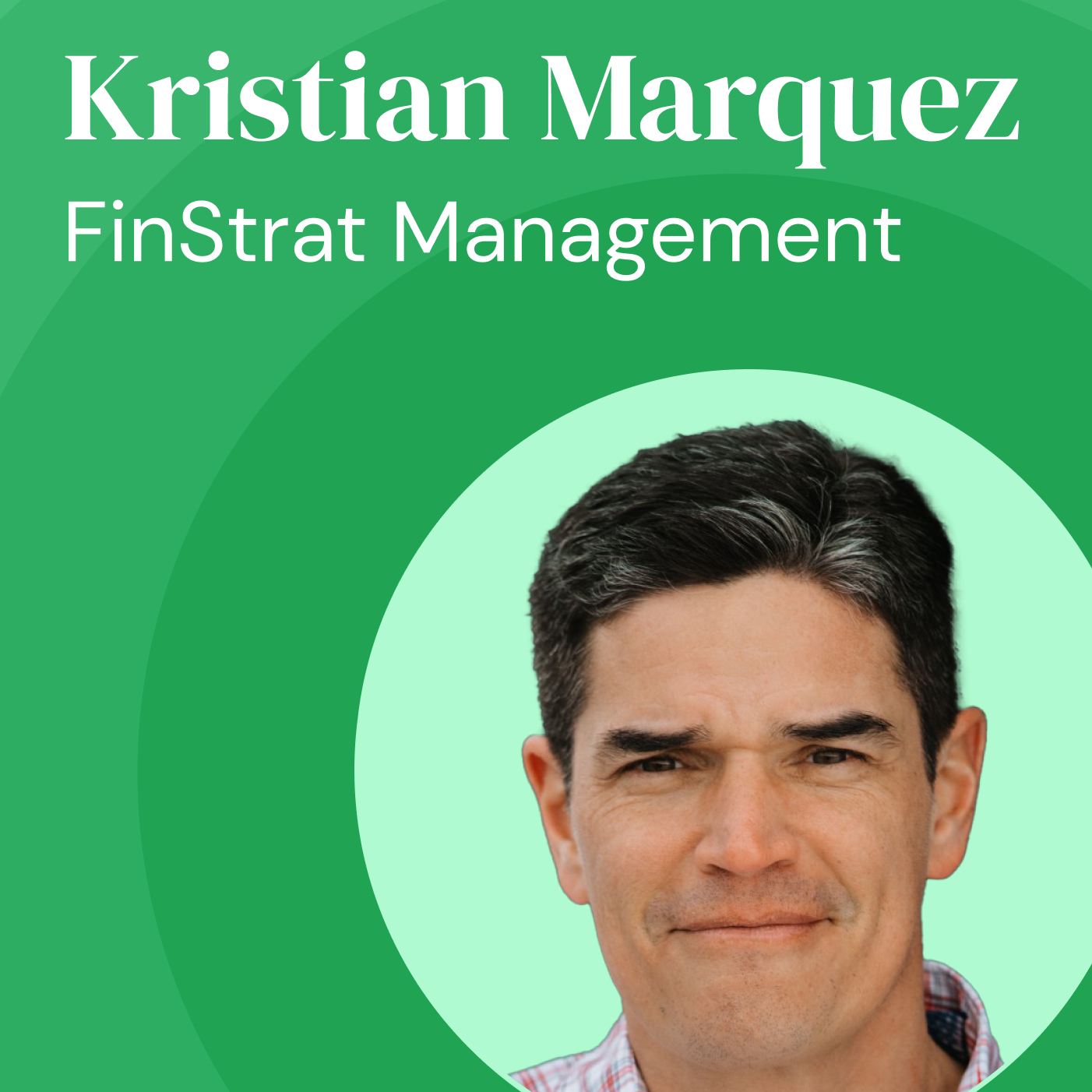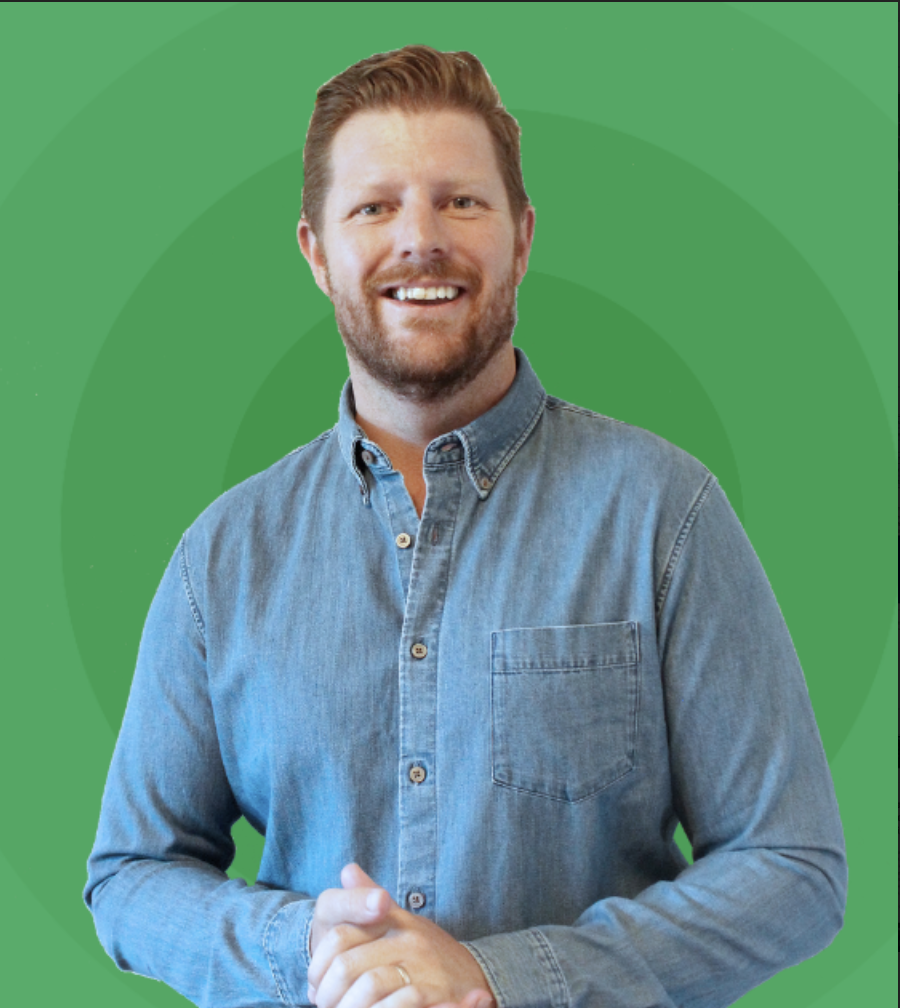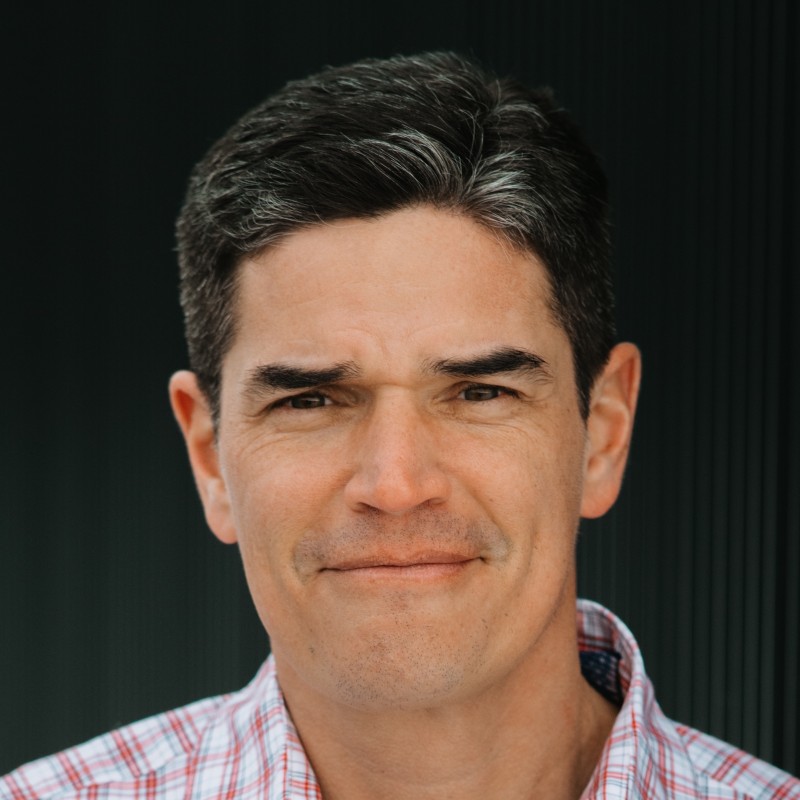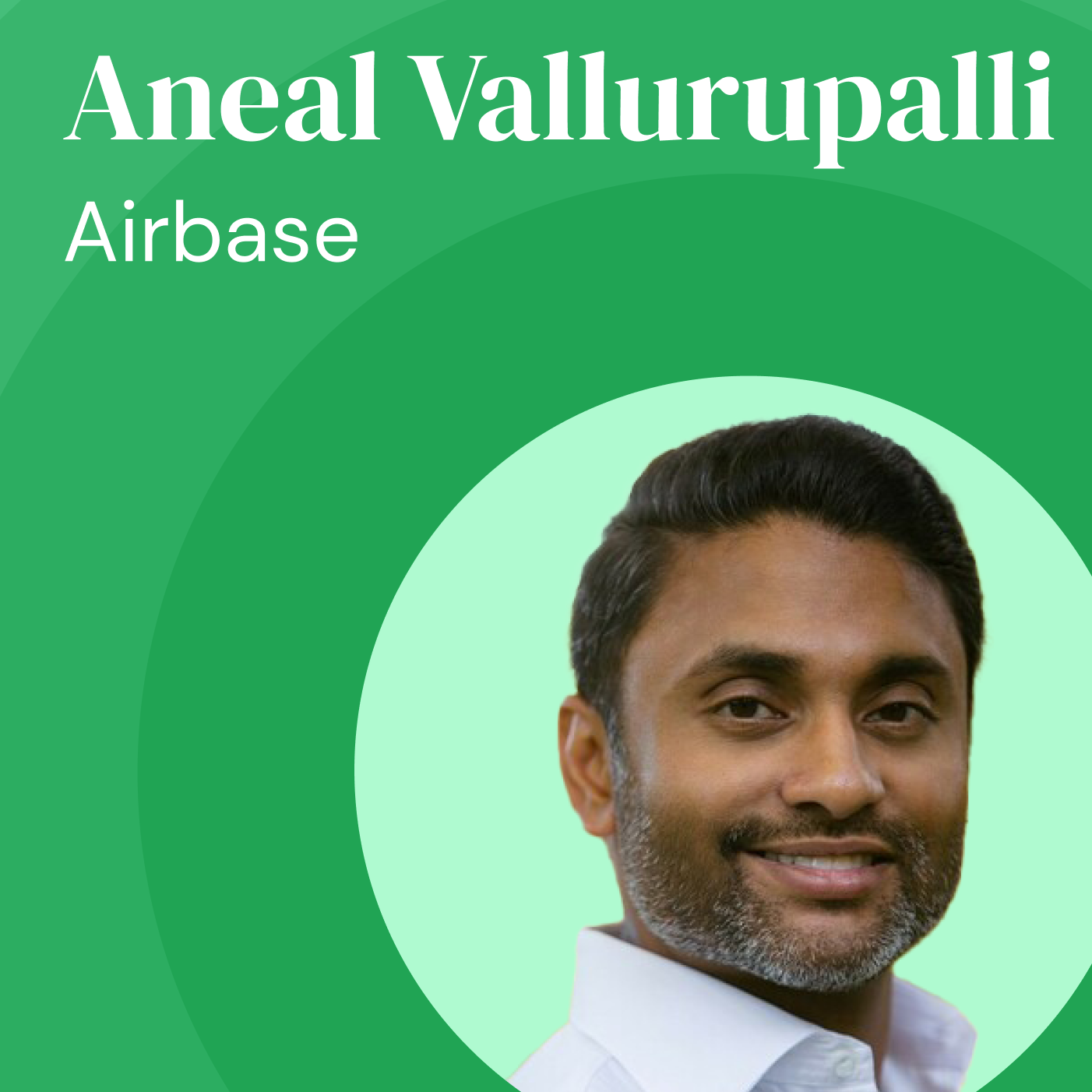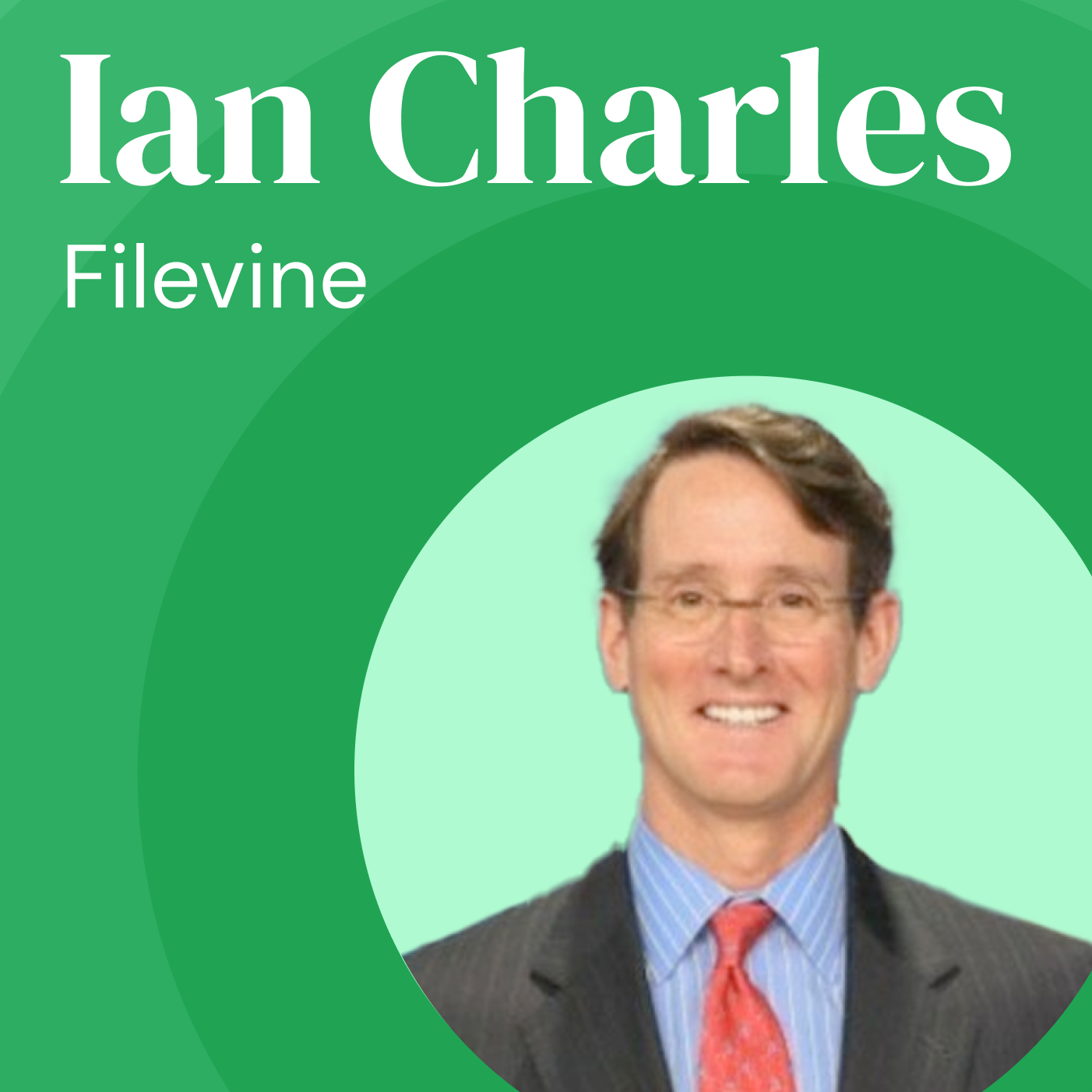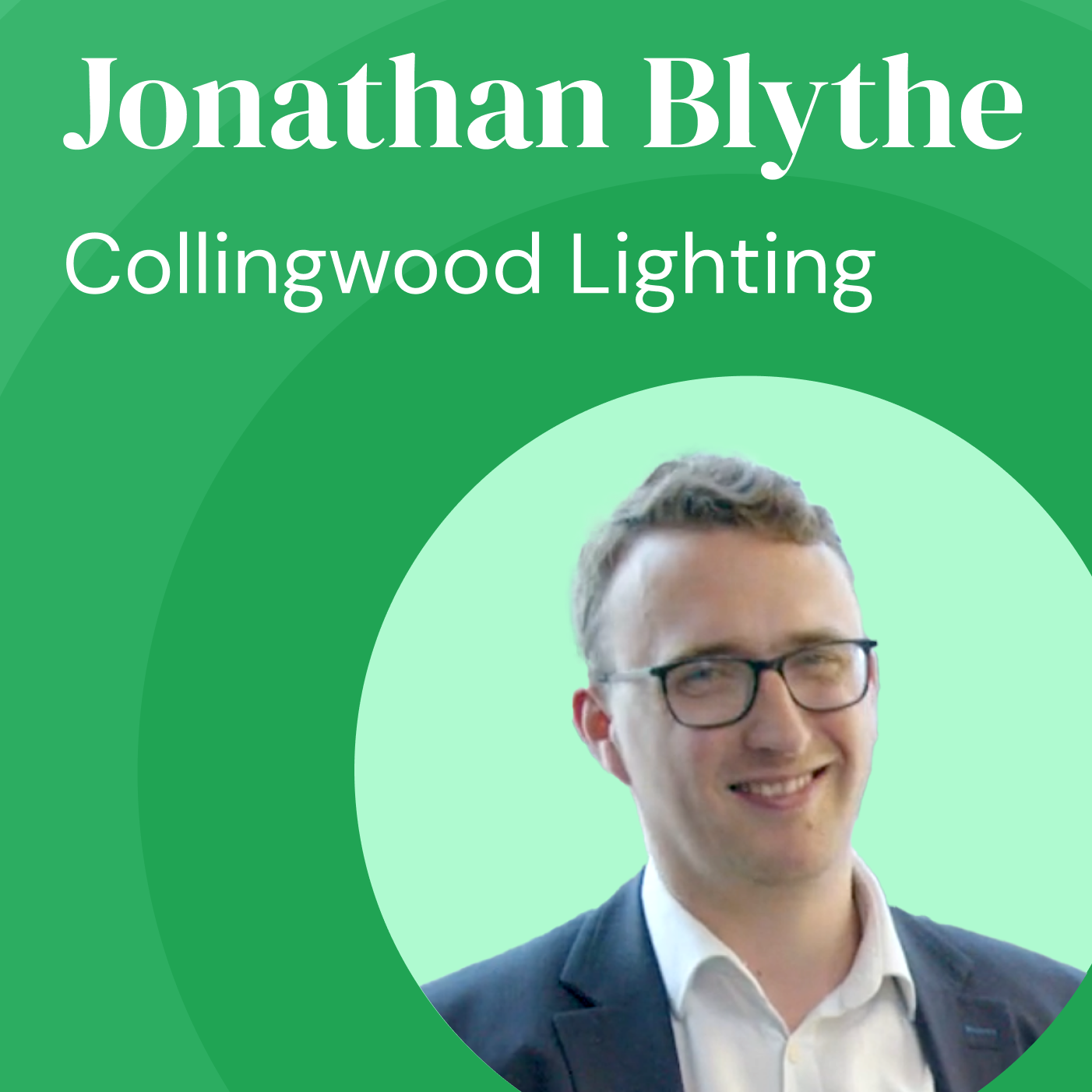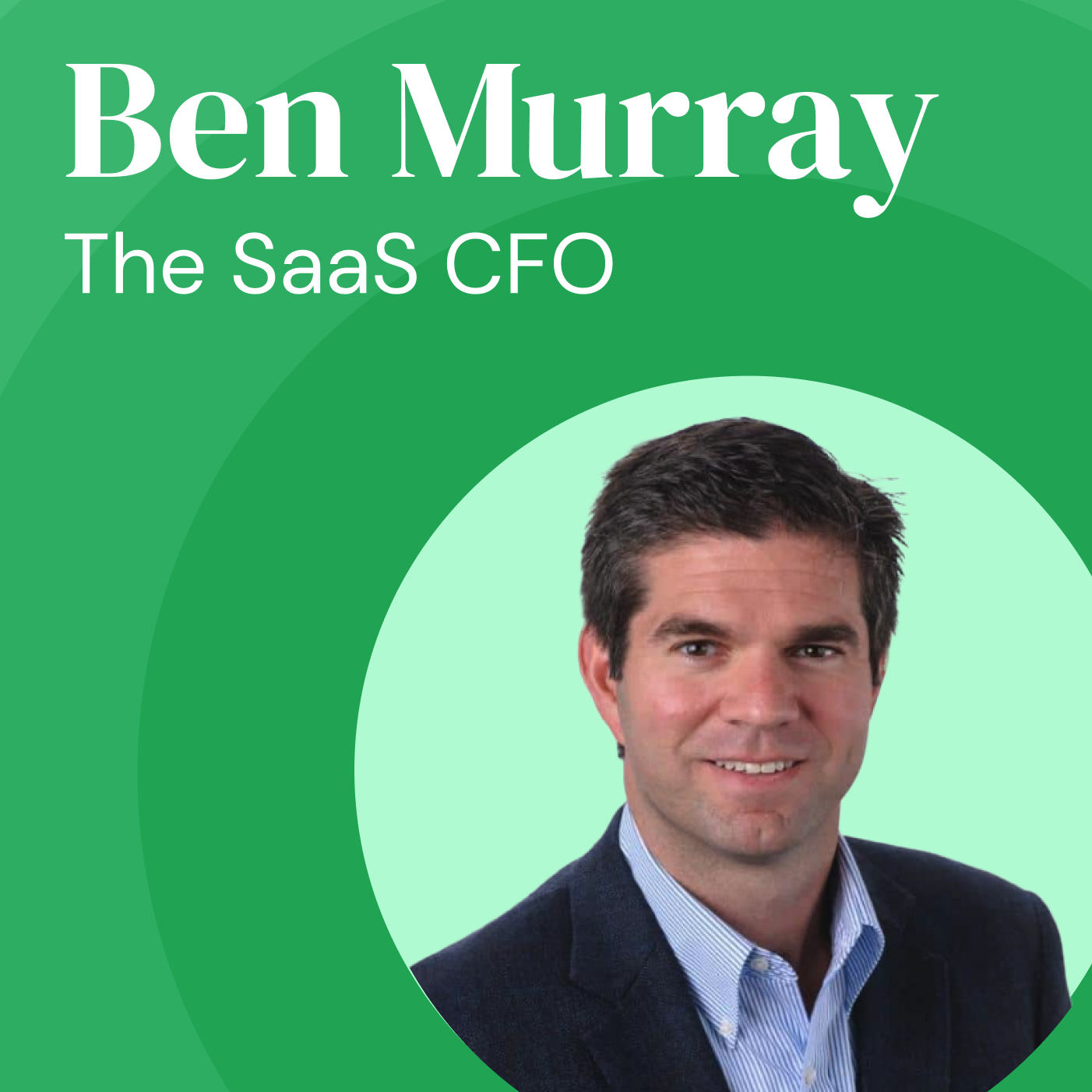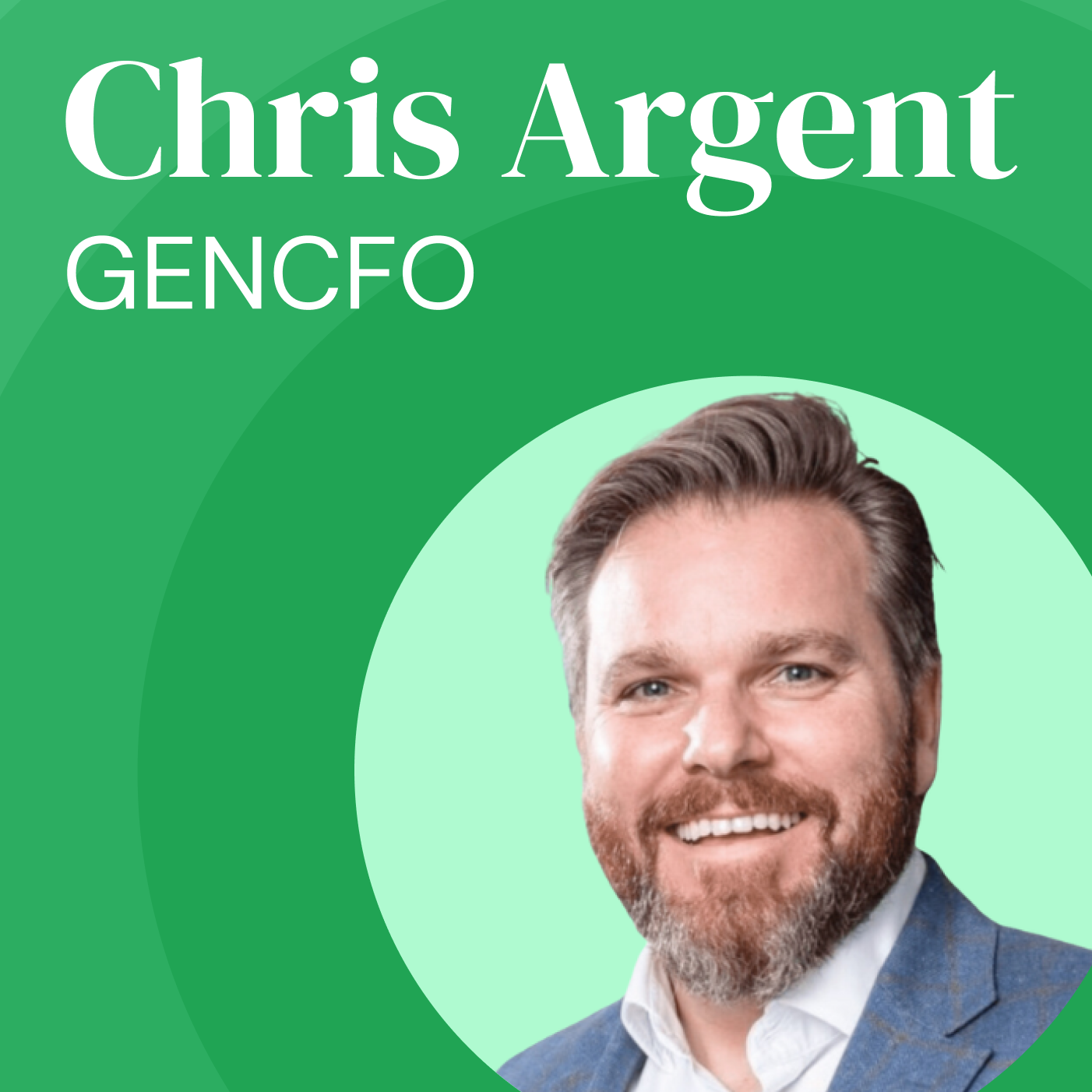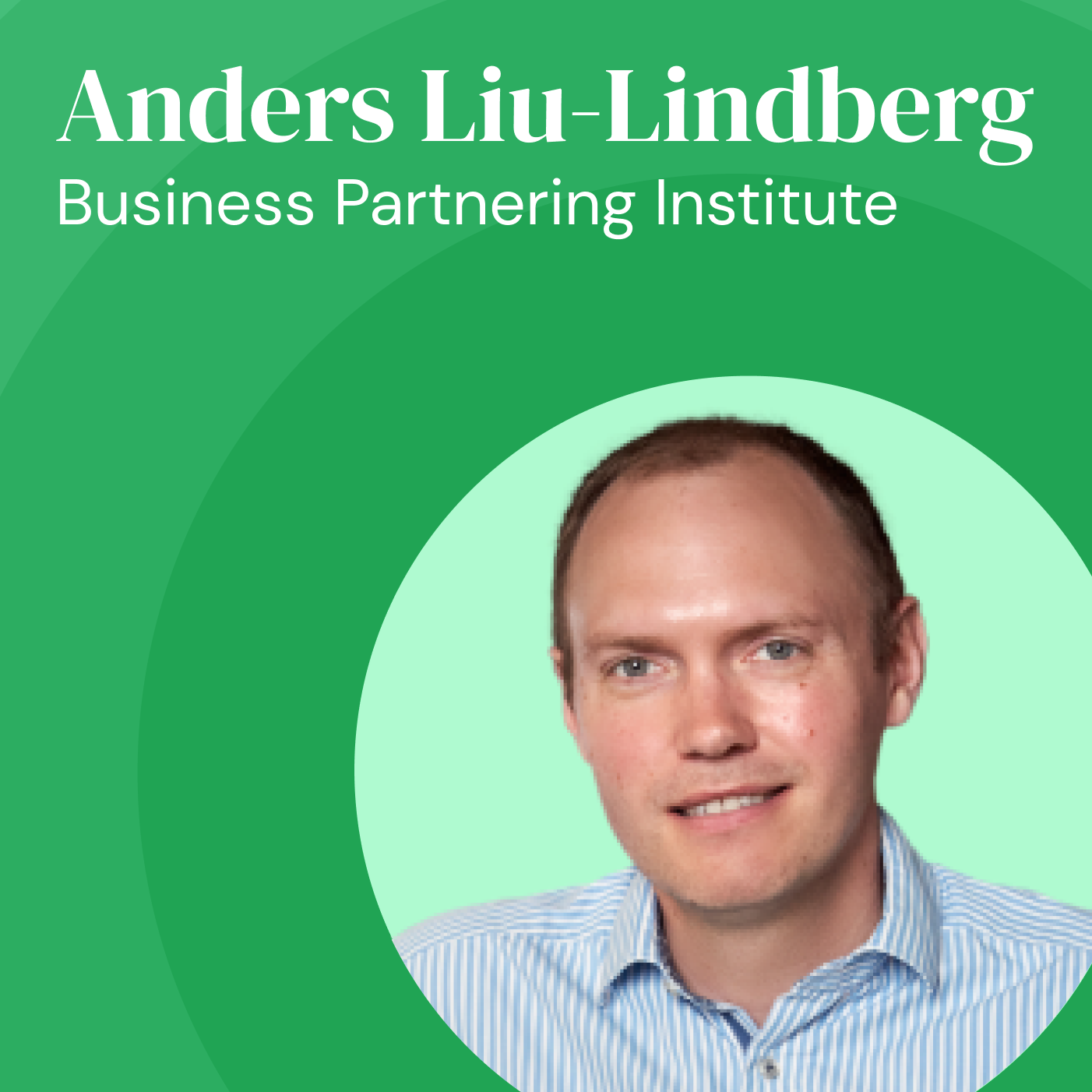The CFA Advantage: Insights From a CFO | Kristian Marquez
- 0.5
- 1
- 1.25
- 1.5
- 1.75
- 2
Rowan Tonkin: Hi, I'm your host, Rowan Tonkin, and welcome to Being Planful, the show for FP& A leaders and planning experts. Hi, everyone. Welcome to Being Planful. I'm your host, Rowan Tonkin. Today, I'm joined by Kristian Marquez, the CFO of FinStrat Management. Welcome to the show, Kristian.
Kristian Marquez: Rowan, thank you for having me.
Rowan Tonkin: Well, I'm really looking forward to this. We had a prep call a couple of days ago and we came up with some fantastic topics for today's session. Before we jump into some of those topics though, I just wanted to ask a couple of questions. So number one, can you tell the audience about FinStrat Management and what you guys do and your services? And secondly, tell us a little bit about your background. Just help everyone understand your experiences as we dive into some of these topics today.
Kristian Marquez: Yeah, my pleasure. So FinStrat Management, we provide fractional chief financial officer- led accounting and finance services specifically to B2B SaaS, but more broadly venture- backed companies. We also work with investors, both angels and venture capital, fulfilling their portfolio needs, which includes collection and reporting as well as fund accounting and administration. In terms of my background, so after I got out of the service, I decided to pursue a career in accounting, finance and investment analysis. So there is a professional designation called CFA, chartered financial analyst charter holder, of which I achieved back in 2004. So going on now almost two decades, accumulating a whole host of experienced registered investment advisors, private business, both in the trenches but leadership positions. But notably and something I presume your listeners would love to hear about, I've had my fair share of wild success and a handful of failures along the way, which I've learned from, but ended up getting hired as a financial analyst at a consulting firm, employee number eight. Over the course of nine years, the company proceeded to grow exponentially to the point that a year after I left, they IPO'd at 4. 4 billion.
Rowan Tonkin: Wow.
Kristian Marquez: So right place, right time, was healthcare IT, combination of analytics and clinical interventions. I was very fortunate because I just kept getting responsibility heaped on top of me. It culminated with starting an intra- business where I had a material hand in taking this new line from zero to 80 million ARR in two years. Wore a whole host of hats, product development, sales and marketing, professional services. And so with that, had a spring in my step, left, co- founded a telemedicine company with two physicians. Raised 2. 5 million pre- revenue, and then unfortunately at the end, two and a half years from then, closed the doors because we weren't able to bring the company to life. So a whole host of great lessons that I took with me there and then started FinStrat Management in January 2017. And very fortunate, work with a great group of clients as well as staff members. We're predominantly through the US, so we have an international client in the Middle East, but as I mentioned earlier, these are predominantly founders, people who have innovation in their DNA, want to see a better world. And being a part of their story to enable them is awesome.
Rowan Tonkin: Awesome. Well, that's going to be great topics for discussion today, that kind of experience. The one thing that you just talked about there was the CFA certification and I want to dive into that a little bit more. Longtime listeners would've heard our conversation around the Financial Modeling Institute as well as the Financial Planning and Analyst Certification from AFP. CFA is one that many may not be familiar with. Can you talk a little bit about... I know you've held that designation for a while now. Can you talk about a little bit about the actual certification itself, and then number two, how that's helped you in those, what it was, a rapidly growing startup and then now helping manage a lot of these processes for your clients?
Kristian Marquez: So CFA charter holder's been around since before I was born and international designation on par with an MBA in finance. Three exams. The course material is heavy emphasis on portfolio management, so think equities, bonds, derivatives. But those in the space know that accounting, which is part of the curriculum is a heavy dependency on running a business, but also analyzing it. Today, you'll find CFA charter holders occupying CFO position for Fortune 1, 000 companies, running hedge funds, mutual funds, independent advisors. And the designation has made a name for itself because the three exams' pass rates are historically below 50%. In addition, at least when I was taking it, they were only offering each exam once a year, and if you didn't pass, you had to wait. I understand that since changed. But nevertheless, it is a great professional designation for someone who's dedicated to the craft of investment analysis, but in the weeds as it pertains to the topics I mentioned. And so I get asked, " Kristian, what do you think MBA, CFA, CPA?" I admit I'm biased, but I follow my own advice. I think in terms of, " What am I going to learn? What's my price point?" but also supply and demand. And so all in investment for a CFA, presumably you pass each exam the first time, is going to be less than five grand as compared to an MBA. Depending on what school you go to, it can be high five, if not six figures. Because of the pass rates, there's also a smaller pool of CFA charter holders. And for that reason, a lot of employers recognize it, and especially in my space, we work with venture capital firms, and some but not all founders recognize and acknowledge the designation and realize that they're working with someone who's dedicated to their craft because of those low pass rates. So anyway, long way of saying big endorsement from me. If you're considering a career in accounting or finance and investment analysis, I'd encourage you to strongly look at getting a charter.
Rowan Tonkin: And so let's say you've been a Big Four accountant and you've done your degree in finance or business administration and then you make the world to operator and you jump into maybe an FP& A role, which we hear a lot of our listeners have done, what would they get from this designate, not necessarily from the designation, but from the learnings that they would then be able to apply immediately for their employer right now?
Kristian Marquez: It's a great question. So I think as the body of knowledge as a tool, and like any tool, you have to ask the question, " Well, to what end?" I personally always like to understand what my destination is and work backwards. And in this case, if you think of the profession, you're really seeking to answer the question, " What's our strategy?" Try to be as objective as possible and eliminate as many cognitive biases that we bring to the table as people. One of the ways to do that is just numbers. Now I acknowledge that I can create a forecast that says anything, but presuming that you're utilizing benchmarks and you're using reasonable growth rates, whether it's revenue or expense, understanding accounting, understanding how you can leverage equity or debt and in your favor, those are assets in my opinion. And I say that very practically, having used it, having served as a client- facing fractional CFO. And so we'll build forecasts for our clients and we start having conversations along the lines of, " Well, what would you like to exit at? What are the multiples in the marketplace? How is your company legally structured to help us better understand what your tax liability is going to be and then let's back into what a trajectory needs to look like, factoring realistic assumptions to get there?" And the coursework lends itself directly to what I'm describing. And again, I hate to say it helps open doors. It does. That job I got as the employee number eight of the consulting firm was specifically dependent on me passing the third and final exam, which I did before they extended me an offer. But once I was in and I was given the role, I was able to apply what I had learned and I continued to do so 20 years later.
Rowan Tonkin: Yeah, I think that's the... So is there an ongoing commitment for you now? Obviously, 20 years ago, what's the ongoing commitment to continue to hold your designation?
Kristian Marquez: Yeah, so there's continuing education like many professional designations and world's evolving and there was no crypto back in 2004, but it's an asset class. I've been asked questions, " How does crypto factor into treasury management?" And it's a reasonable question. And so a long way of saying that world evolves and so I think it's the responsibility of any professional to stay abreast of development.
Rowan Tonkin: Yeah, awesome. So for those considering the CFA designation, from what Kristian just said, you're going to get a ton of value, you're going to open a ton of doors. And probably, I'm sure Kristian helps in the personal side of evaluating investments, and even if it's just not only helping your company, but helping yourself, I'm sure.
Kristian Marquez: Absolutely. So coincidentally, favorite subject, I love talking about business, " How do you grow them, generate enterprise value, monetize them?" We're very fortunate. We have older kids. Our son started his own business last year after he graduated from college. He does construction. And I'm very grateful to be able to pass along a lot of the lessons that I've accumulated over the years to him and watch him succeed. Shout out to our son, but he got to a million and trailing 12- month revenue faster than I did. But very practically, there's a degree of formula to this. And so I know when we were doing our pre- podcast. I get asked. So there's some questions I will get asked and one of the big ones is, " How do you transition from employee to business owner?" And the answer to that question is, well, it depends, but it's also, I'll acknowledge that it's difficult depending on your age. And so case in point, if someone has a responsibility to a family to include car payments, a mortgage, education, maybe their own educational commitment said another way, those are all fixed obligations. They look like debt to me. You still have to make those payments. They're not going to put a pause just because you decide to start a business and you need some time to create a cashflow. So long way of saying is that the risk profile changes as you get older if you're not as fortunate to have a significant amount of money socked away in the bank. And so my answer is start young, as young as you can, similar to my son, because this concept of risk is really important to investment it or how you apply yourself. And you think about it, capital's finite, time is finite. And while we all like having grand slams, you have to appreciate that the harder you swing potentially, the more risk you take. Now that's fine, but we live in a world of consequences. And so if you're going to fail, I would pose a question, " Would you rather fail at 24 when you maybe have rent and a car payment or would you rather fail at 54 when you have a lot less of your time left in this world, let alone capital?" And who knows the extent that that influences the decisions you make knowing you have a lot more at risk. And so today, when I speak with especially people in their 20s, if you have an itch to create something, it's great time to do it because you also have a lot more energy, presumably a little bit more time than someone who's married with kids. And so a big encouragement for me to really do it then and not later. Now that said, I also acknowledge that someone who starts their business in their 20s is going to have less options necessarily from a professional services perspective than if you're starting it in your 30s, 40s or 50s because clients are looking for expertise. In the case of my son, he's in construction and he's been swinging a hammer for six years prior to graduation. And so he had accumulated a tremendous amount of experience leading up with that time, but if he had gone out and wanted to start an investment analysis firm like banking, without a pedigree, he'd be struggling. But there's a whole host of options available. I'd say really the big one that I hone in on and all of our fractional CFOs deal with this today, it's cash is king, especially given our current interest rate environment. The world has changed for a very long time. In the VC- backed space, the mantra was, " The money will be there tomorrow, so spend today. And what not all but many companies are finding out is that's no longer the case. And so plans that were put in place that didn't include becoming profitable are now being reassessed, so that they can get to the point where they don't have a dependency on outside financing, whether that's debt or equity. And so that concept I would argue applies whether you're starting a B2B SaaS company or you're starting a construction company. It's, " How much did you charge?" and I'm happy to talk about that as well, but really understanding your costs. As a firm, that's where we come in. We make sure that financials are accurate, so that there can be confidence in answering that question. But I would encourage anyone today to get to at least break even, if not 10% net margins. Obviously, it depends on what you're doing, but it then starts to open up a whole host of options once you're in a position that you're generating positive cashflow.
Rowan Tonkin: Yeah, that optionality I think is really important and something that you talked about more on a career level was the concept of taking risks earlier. How did you find that that CFA designation, which it doesn't sound like too much of a risk if you've got someone telling you, " If you pass, you get a job," but then how did that lend itself throughout your career to taking bigger risks earlier on? It sounds like you were given a lot of responsibility in that kind of major phase of growth at that medical company that you're at. Can you talk a little bit in context of the CFA certification, what you learned there, so that many of our listeners who are at that inflection point of their careers, they're trying to figure out, " How do I go become a CEO, CFO," or maybe they want to become fractional too in future and run their own system? How would they think about going and taking some of those bets and applying it to their careers today?
Kristian Marquez: Yeah, so I think analogy would be is, if we were at the range with our rifle, it's a difference between taking our time, looking down the scope and ensuring that we were going through the appropriate motions versus shooting from the hip. Because in either instance, you may hit your target, but when your measures are calculated, your odds are higher, right? And I'm sure there's no shortage of people out there who will give me or give us definitions of what risk is, but the way I think about it is just, " What's the probability of failure? Is it high or low?" to oversimplify it. And so to answer that question is where the value of a charter comes in. So I'll oversimplify it again, but let's just say there's two categories of analysis, fundamental and technical. So fundamental would be, " Help me understand the environment," and the environment can be macro. For example, " How do interest rates influence what I'm doing?" It can be micro. " Help me understand the deep tech space or the ag tech space, whatever space I operate in really, really well," then you can understand the company, management, the product, and even down technically to the philosophy of how the company is run such that it manifests itself in a strategy. And so you get investors like Warren Buffett whose entire promise premise is fundamental and then they've created rules for themselves as to what's an acceptable amount of risks to take relative to what they're going to spend on something. That same philosophy applies to starting a construction business, a B2B SaaS business, frankly undertaking a CFA, understanding, " Okay, what's the time commitment? What's my passion for this? What's my budget relative to the cost? And do I feel like I can come up with an acceptable strategy to study for what is a enormous amount of material in a limited amount of timeframe?" On the technical side, a little bit different. So in the world of investing, technicals are really a function of charts. You're looking at price, you're looking at derivatives of price like stochastics, relative shrank index indicators to answer the question, " Does this stock have a long way to go or is it going to turn around?" There are parallels in the business world understanding what you're going to charge, what your competitors are charging, back to understanding your costs. I'd argue those are the parallels and I don't want to suggest though that you overanalyze. It's the old paralysis by analysis. My experience has been that's the thing too. Sometimes I think there's tremendous value in just making a decision and then changing course if you realize you were mistaken. But yeah, the spirit of this is really being calculated and understanding what it is you're doing before you place a bet inaudible.
Rowan Tonkin: Yeah, that's super helpful. I think having that system of making those initial calculations, a lot of folks will just go to a spreadsheet or a model of some description and say, " All right, well, how do I get from A to B?" " Here's how I get there," and they don't step back and apply some sort of logic or system to say, " Is this achievable? How can I get there? What's the risk levels? Why are we doing..." And so to me, it sounds like they're the fundamentals that you learn, which is, " Here are all the assumptions. Here's the pathways and then here are the options that I get to navigate that situation." Is that fair to say?
Kristian Marquez: It is. Yeah. And I'll throw one caveat out there. If there are any listeners who've said, " Well, I know so- and- so, they're widely successful, they don't do any of that stuff." I get it. I would say probability is an investor and someone in accounting and finance best friend. And for those, myself included, who originally just took probs and stats and really didn't apply themselves, I would encourage to set aside some time to revisit the subject, because say if you have a really large sample in the US over 300 million people and we can dissect it to how many business owners there are, but you have to appreciate is that there will be people who will be wildly successful just by the sheer number of people that there are out there. And so will there be people who consistently generate success or great returns? Yes. Does that mean though that they're necessarily have the secret sauce or are extremely disciplined or have it all figured out? They exist, but the number's really small and don't be convinced everyone's in that bucket.
Rowan Tonkin: Yeah, I think it comes back to something I talk a lot about in the intersection of finance and marketing, is there are playbooks out there that generate predictability, right? And that's what a lot of folks are looking for, right? Finance have great predictable playbooks around how to run a B2B SaaS company and the old playbook is no longer in play. And marketers, we have playbooks around how to run a great campaign and why do we love those playbooks? It's because they're predictable. We know what rate of return we're expected to get based on the inputs going in. Does that mean they're the only playbooks? No. Someone could throw a trick play in there and it could come off, right? And that's great, good for them, but that's not the way to do it repeatedly and do it with a high level of predictability. And so I love the idea of getting those fundamentals of, " Here's how I evaluate these decisions and can consistently apply that through all aspects of the business." We talk a lot on the podcast to FP& A professionals about how to become a better business partner to the business. And maybe you could help shed some light on how a CFA designation can help you do that. And to me, my quick interpretation from our conversation is, well, you'll just help someone evaluate the risk of their decision on a more frequent and predictable basis. Is that fair to say?
Kristian Marquez: In the context of different tools that are available. And so I agree with your assessment. I'd add to it by saying, a lot of companies ask the question, " Should I get a debt facility? Should I do a priced equity round?" And the idea is, if you have an opportunity on your hands and you had additional capital, can you magnify the growth of your company? Now, albeit it comes in the case of equity, the cost of dilution. In the case of debt, it comes in the case of additional future cashflow. You're effectively borrowing from the future at a cost because there's going to be interest for the risk that the lender takes by giving you their money. And so one of the questions we help answer is, " All right, do you do debt? Do you do a price equity round or anything?" And there are consequences to those answers or the decision that you make or a value of a CFO, whether they have a CFA charter or not, is helping answer that question. So you have to look at the current company cash profile. You have to look at the current ownership percentage, how much of the company would you be willing to sell it and what valuation. And we can devote an entire podcast on packing some of these topics, but that's where someone with CFO experience really can add value. And I hate to say we've onboarded clients who had been taken advantage of by unscrupulous investors, would bake in terms within a convertible note that had they been working with us at the time, we would never have told them to agree to. And they ended up experiencing material dilution. So yeah, it's a combination of risk, " How big is the opportunity? How bad do you need the money and what are the consequences of pursuing different options?"
Rowan Tonkin: And let's keep going on the element of risk right now. I think it would be weird to not have a podcast and talk about generative AI or AI in this current moment. And so as you look at that world, how do you see that playing a part in our evaluation of risk? It poses its own risks unto itself, but how are you as a CFA looking at leveraging those types of tools to help you maybe find better evaluations faster or more predictably?
Kristian Marquez: So let me start by saying I'm not an expert in AI, but like many professionals right now, I've been devoting time to better understanding the subject because it's front and center. And I think anyone would be naive to say it's not going to be a significant aspect of business for the decades to come for the rest of history. I think one of the most important things that we can start is just how does AI work. And so AI in simplest terms requires datasets to learn from. And so on the surface, you can say, " Okay, well I understand that," but I think it's a really important to answer the question, " Well, what is your dataset?" Because I'll oversimplify it and say, " If my sample set was very small as compared to enormous, you are going to get a degree of bias the smaller that sample set is." And so for your listeners who've been following AI, you may have heard references to hallucinations, which is another way of saying errors in the results that AI tools have been providing. And it's important because to answer your question is that if I want to use AI, which arguably has infinite more computational power than any one individual, that's great, but what is it using to make its determinations? And my sense is that it really depends on what's the question that's being answered. Because depending on the question, it's going to dictate the dataset. So I'll give you an example. I mentioned that we were doing healthcare IT. It was a combination of predictive analytics and clinical interventions. Our datasets at the time that we were using to predict which healthcare plan members were going to receive certain types of care was based on information that was resident either with the health plan or their claims data. For those of you who are familiar with healthcare IT, it's very limited. It doesn't say, " Oh, Rowan exercises religiously. He goes to bed every night at 11: 00 PM. He takes his AG1 in the morning. He has this phenomenal relationship with his spouse and these kids," and all of these variables that absolutely contribute to health outcomes as demonstrated by a whole host of independent researchers. But what do we do in lieu of that? We have a zip code. That's in there. And the zip code becomes a proxy for how unhealthy or healthy you may or may not be. And so, okay, well, what does the zip code do? Well, if you live in one of the wealthiest neighborhoods in the country like Greenwich, Connecticut as compared to, I'm not going to pick on any states, but let's just say a zip code where they're in the bottom quartile, the expectation is you have a lot more means available to you. You may have a higher education, so you understand the consequences of not taking care of yourself and so we should have different expectations. But you and I know that's not an absolute. Just because you live in Greenwich, Connecticut, not to pick on them, you may not have the healthiest lifestyle. So you can have the most sophisticated AI model on the planet, but if your dataset doesn't include the level of information that you're seeking to answer, it doesn't matter. And so really a question becomes is, " Well, who owns those datasets? Where are they coming from? What are the sensors that are physical sensors or even the software code that's used to pick up on behavior? And then can you make that something that can be then used to teach an AI model to learn off of?" And so I think that's really important. I think, again, I would say depending on the question we're seeking to answer is going to dictate how near or far we are away to getting to a point where we can rely on artificial intelligence to a high degree of confidence. Now, between now and then is, am I suggesting that we don't know? I just think you have to understand is that there are risks because the data is limited and you have to marry that against common sense and maybe other sources of information to include personal experience despite us having flaws in our own decision- making because of our own cognitive biases.
Rowan Tonkin: And there's biases that have been potentially written into some of the collection of that data, the people that can afford the sensors and the data collection of their own personal biometrics data. Not everyone can afford that, so it might just generally be a healthier population based on the affordability of that data, right? So it's an interesting time. I think the other thing that I would say to folks is be really specific about the AI that you are talking about. Mathematical AI or numeric AI has been around forever. And predictive algorithms and predictive forecasting models, that's just math really. A lot of what's being talked about right now is generative AI, turning that human text and human language into something mathematical, something programmatical or narrative based. And that's where some of the challenges will come from, is because pulling from data sets that may not be relevant to you or to your industry or to your use case depending on what you're trying to do with it, but the math will always be math, and underlying all of that, the foundational data is always going to be determinant of whether the model performs or not.
Kristian Marquez: Yeah, and I've come across... So everyone, I presume, your listeners who are familiar with AI understand this concept of just being a prompt engineer, which may have already fallen by the wayside, but basically, the idea is, " How well are you or how good a job can you do is structuring the questions you pose to have an answer?" And I've actually seen some pretty great examples where you can say, " What's one plus one and then give me the support as to where you're pulling your answer from?" And so just an example, but really, we're going to see a continued evolution in terms of the integrity of the responses that we're getting. And we're only a year into this since OpenAI released its first iteration of ChatGPT. Could you imagine 10 years from now? Yeah, I would tell you that anything that's data will probably progress the quickest and anything that's in unstructured data will take a little bit longer, but it will come.
Rowan Tonkin: Yeah, absolutely. Well, Kristian, this has been a fantastic conversation. I really appreciate you taking the time to talk us through. I hope our listeners have learned a lot about the CFA designation, how it can apply to them, how Kristian's been able to use it in his career to understand some of these core concepts. And we really appreciate you and your time. So thank you, Kristian.
Kristian Marquez: Rowan, my pleasure. And as a courtesy to your listeners, happy to extend a free 30- minute consultation with one of our fractional CFOs if they have any questions about their business that they like to run by us. Simply go to our website, on our Contact Us page. So website's, fin, F- I- N, strat, S- T- R- A- T, and then mgmt, short for management, dot- com. And just mentioned that you heard the two of us on your podcast and happy to make some time available for your listeners.
Rowan Tonkin: That's really, really helpful. So folks, feel free to go over there. That's finstratmgmt, M- G- M- T, dot- com. So thank you, Kristian, and thank you to our listeners. Hope to see you soon. Take care. Make sure you hit Subscribe on Apple Podcast, Google Play, Spotify or wherever you get your podcast, so you don't miss an episode. Thanks for stopping by.
DESCRIPTION
On this episode, Kristian Marquez, CFO of FinStrat Management, dives into his career journey and the impactful role that the CFA designation has played, explaining how it can open doors, propel career growth, and provide a comprehensive understanding of portfolio management, accounting, and financial analysis. He also shares valuable insights into risk management, the evolving landscape of AI in data analysis, and other useful takeaways for both seasoned professionals and budding entrepreneurs. Plus, stick around to discover how you can score a FREE 30-minute consultation with one of FinStrat Management's fractional CFOs!
